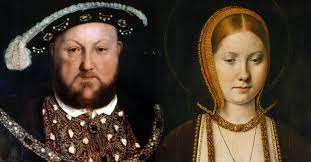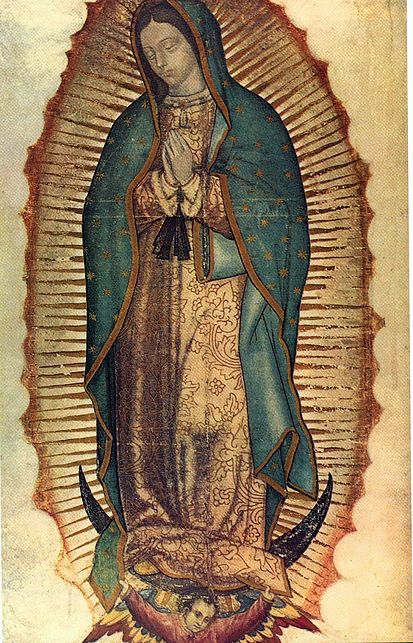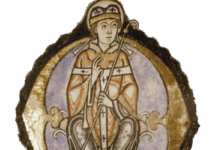It was on this day in 1509 that Henry VIII, of the recently founded, and some say upstart, Tudor dynasty, married Catherine of Aragon, the daughter of Ferdinand and Isabella, King and Queen of Spain, although descended from the House of Lancaster and, more distantly, York, mortal enemies in the Wars of the Roses, and this marriage of true minds hoped to resolve that strife.
Alas, it did not, primarily due to the strife within the soul of Henry himself, an ungoverned man, who became more unhinged, from Rome, from human and divine law, even from himself, as his tragic life went on, looting, plundering, pillaging, murdering and, insofar as his ever-more diseased and corpulent body allowed, his sexual improprieties. He almost single-handedly ransacked and razed every monastery and convent in the realm, and set the seeds for the destruction of the Church – which would, of course, survive, as she will today.
This may well have been Henry’s only valid marriage, amongst the six he attempted with his not-so-merry wives. The annulment he had his self-appointed bishop, Thomas Cranmer, grant him to marry Anne Boleyn had no effect, with no jurisdiction. Even after Catherine’s death in 1536, eleven years before her husband’s in 1547, the 50-year-old Henry, on July 28th, 1540, attempted marriage with the 17-year old Catherine Howard, only to have her, like Anne Boleyn in 1536, executed two years later on charges of adultery.
To marry validly and licitly, besides any canonical irregularities like already-existing spouses, one must intend, internally and by vocal consent, the three goods and requirements of matrimony: proles, fides et sacramentum: That is, openness to children (proles), fidelity to one’s spouse (fides) and indissolubility (sacramentum, with the marriage lasting unto death). One might presume that Henry, since getting a taste of easy annulments granted by compliant bishops – yes, I know – did not seem to intend the last of these goods, and perhaps not the second, although he did desire an heir, or more than one.
So let us take heart, at least, in what might have been, had Henry remained to his true wife, Catherine, who remained faithful and loyal to him, her husband in her – and, we may presume, God’s – eyes, right up to the point of her death, exiled from the royal household.
We all have our decisions to make, some more momentous than others, and, even for those majority of us not of royal blood and dynastic ambition, all history hangs in the balance. At least, the story of our own lives, which we write, as we live…











